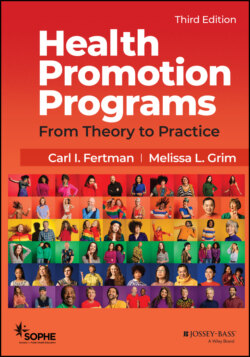Читать книгу Health Promotion Programs - (SOPHE) Society for Public Health Education - Страница 63
LGBTQ+ Individuals Have Special Health Concerns
ОглавлениеA goal of Healthy People 2030 is to improve the health, safety, and well-being of LGBTQ+ individuals. LGBTQ+ encompasses all races and ethnicities, religions, and social classes (Office of Disease Prevention and Health Promotion, 2020). Eliminating LGBTQ+ health disparities and enhancing efforts to improve LGBTQ+ health are necessary to ensure that LGBTQ+ individuals can lead long, healthy lives. The many benefits of addressing health concerns and reducing disparities include reductions in disease transmission and progression; increased mental and physical well-being; reduced healthcare costs; and increased longevity. Gay, lesbian, bisexual, transgender, and queer individuals have special health concerns besides the usual ones that affect most men and women. Efforts to improve LGBTQ+ health include:
Collecting Sexual Orientation and Gender Identity (SOGI) data in health-related surveys and health records in order to identify LGBTQ+ health disparities.
Appropriately inquiring about and being supportive of a patient’s sexual orientation and gender identity to enhance the patient-provider interaction and regular use of care.
Providing medical students with training to increase provision of culturally competent care.
Implementing antibullying policies in schools.
Providing supportive social services to reduce suicide and homelessness among youth/
Curbing human immunodeficiency virus (HIV)/sexually transmitted infections (STIs) with interventions that work.
Many LGBTQ+ youth thrive during adolescence, but stigma, discrimination, and other factors put them at increased risk for negative health and life outcomes. LGBTQ+ health requires specific attention from healthcare and public health professionals to properly address their health needs.
